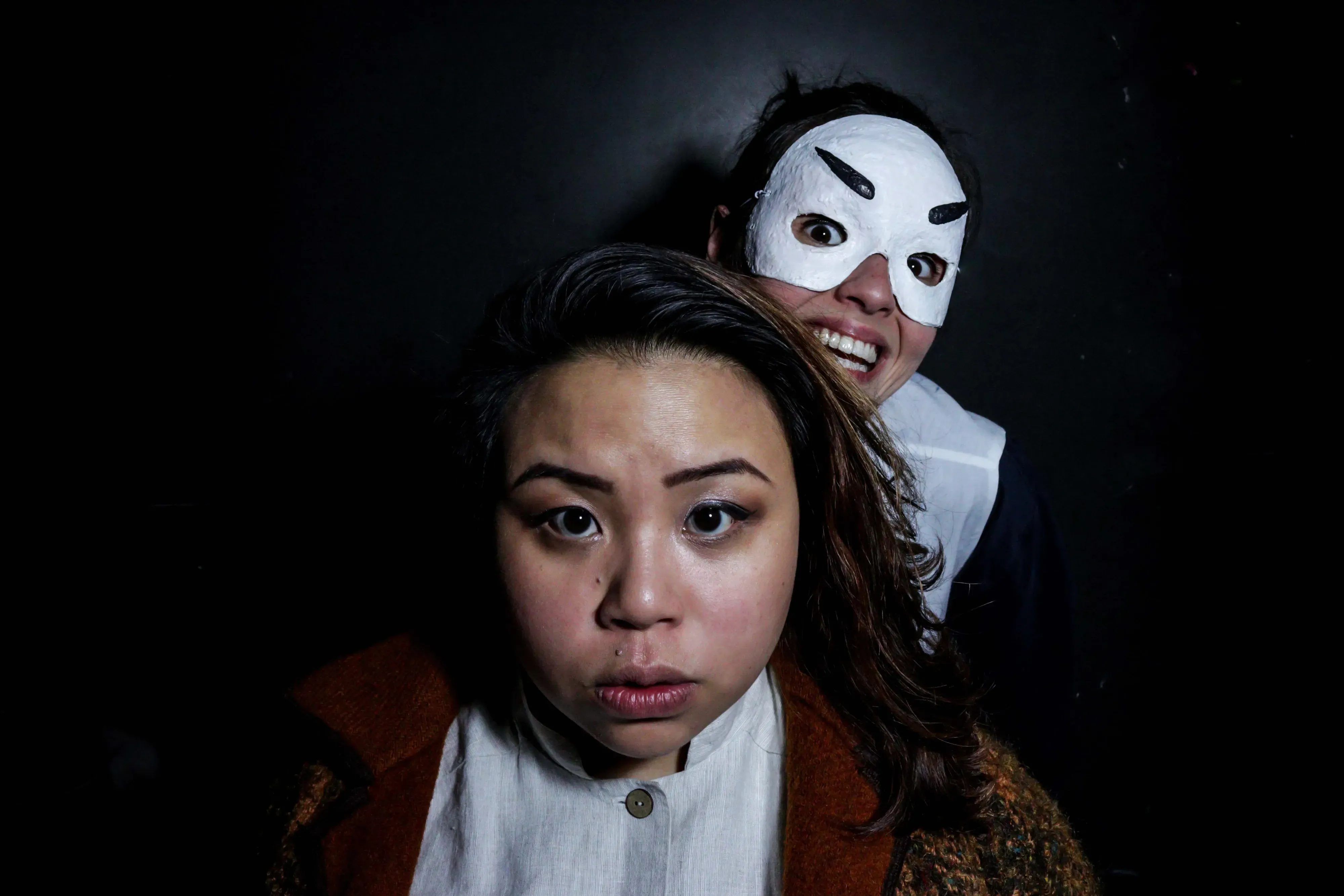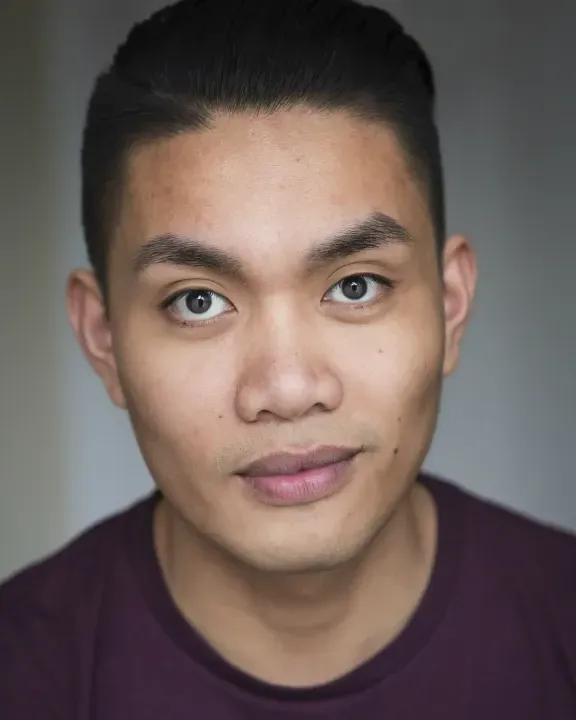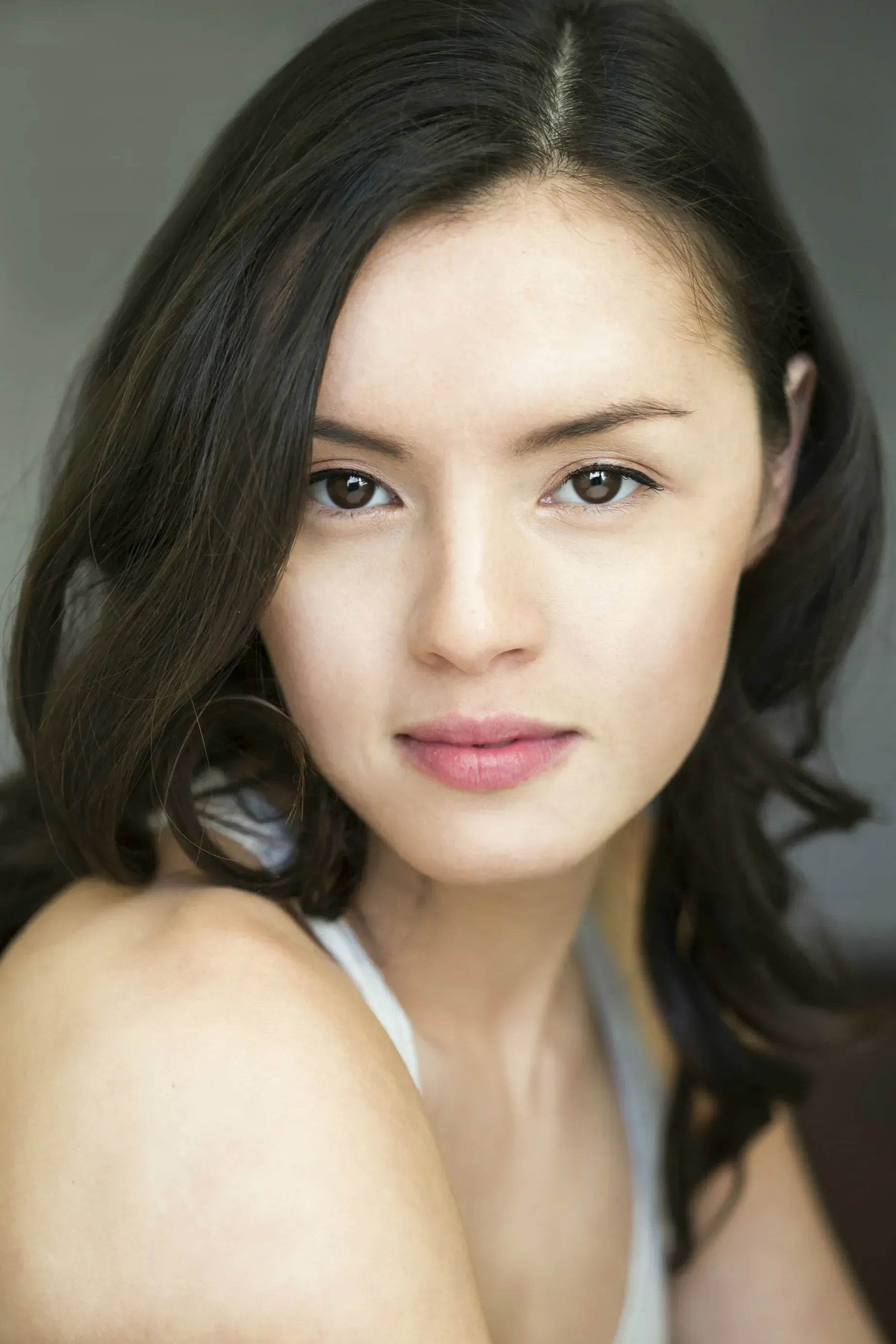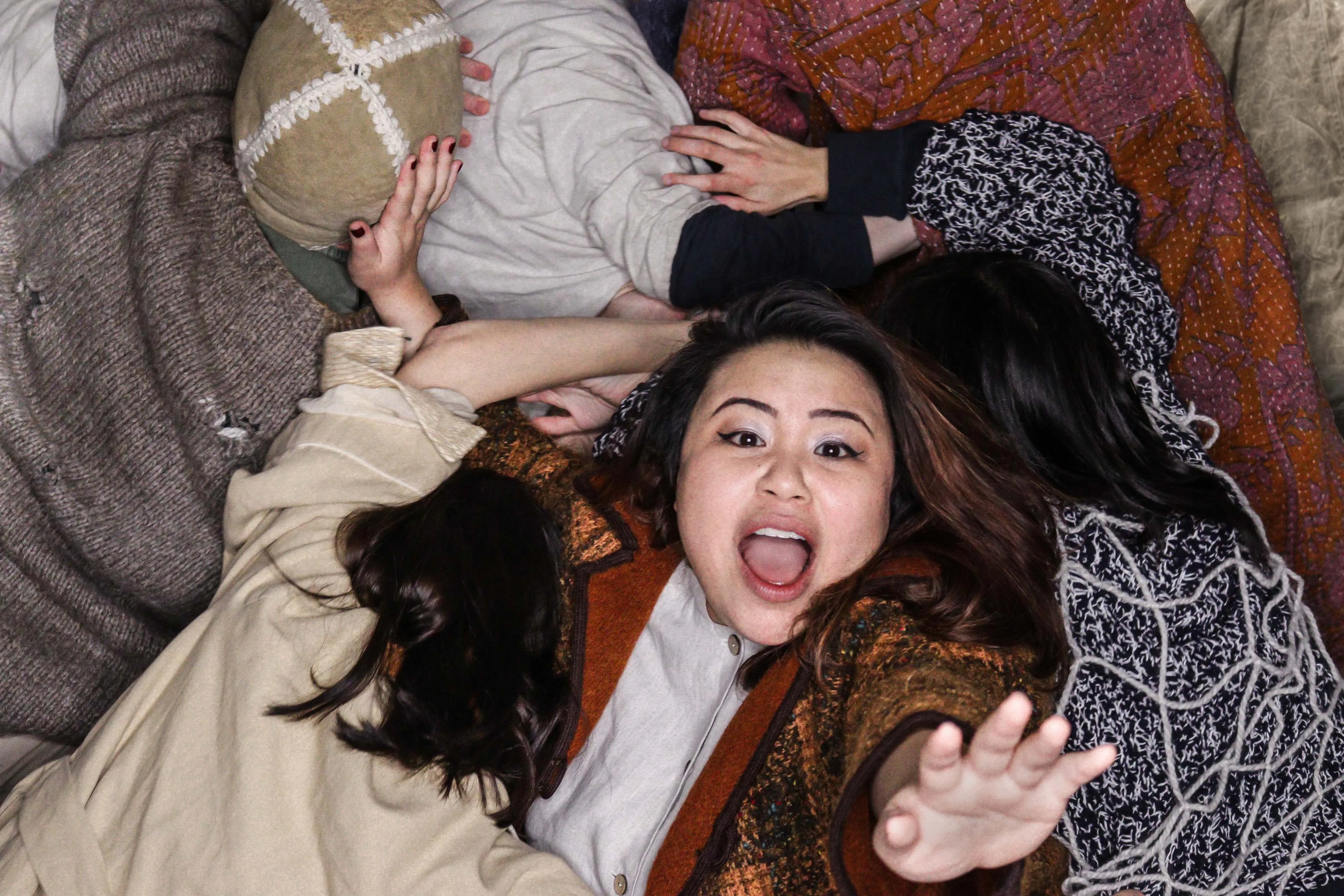Asian theatre takes flight
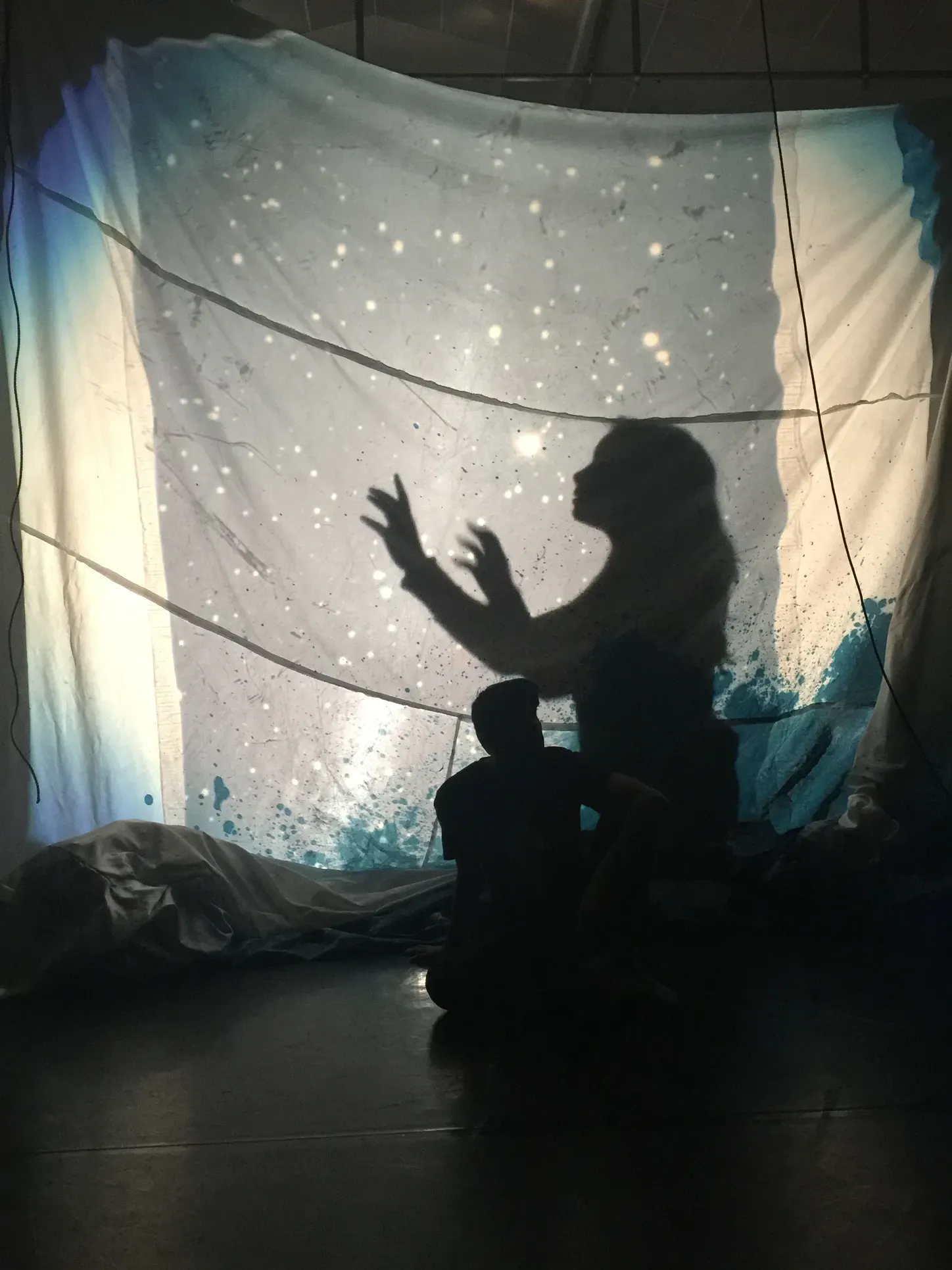
Call of the Sparrows, Proudly Asian Theatre (PAT)’s first original full length theatre work, premieres at The Herald Theatre later this month.
Renee Liang interviews director James Roque and writer/director Chye-Ling Huang.
PAT changed their name recently. Why did you do this?
Chye-Ling: Proudly Asian Theatre reflects where we are now. We've done a lot of growing in the last three years, and we both feel proud to call ourselves Asian, as I believe there is no quantifiable measurement of what makes someone, a story or a piece of work 'Asian' or not. Proudly owns our space, our stories and empowers others to be proud of who they are too.
James: We want to show other New Zealanders, especially younger Asian artists, that our cultural differences are something that should be proudly celebrated and honoured and not tucked away. We want to empower Asian artists in the theatre to speak up and feel like they are represented in the theatre landscape, I reckon this name fits that kaupapa more.
Is it possible to define 'Asian' Theatre, and if so, what's your take on it?
James: I see 'Asian' theatre as something that is made by an Asian artist. A big shift in our company's mission statement along with the name change, reflects this (shifting from "creating platforms to tell Asian stories" to "creating platforms to empower Asian artists"). I think if that artist identifies as being 'Asian' then by default, no matter what story they tell it will be 'Asian', one way or another.
Chye-Ling: If an Asian person, someone who identifies with being Asian, makes a work or tells a story, it's Asian theatre. It's about the practitioner and their unique perspective, not a particular style.
Why make original work?
Chye-Ling: Firstly, there simply aren't enough roles for Asian actors in New Zealand theatre and film. I'm done with stereotyped roles and bit parts, tokenistic characters created to fill a diversity quota. Making work from an Asian perspective in NZ is a way to combat this and empower others to do the same. It's so important to see yourself reflected truthfully in stories, especially as a marginalized or misunderstood group, and we have a unique perspective both generationally and ethnically that many New Zealanders can relate to. We have to keep pushing boundaries to stay relevant and keep our artform alive.
James: It gives you a chance to say something in a way that you can't do with a production of a pre-existing work. You can talk about what makes you mad in the world, what you want to celebrate and also make a point. It also allows you to find your own voice and discover your own creative style and taste as an artist. If no one created original work we'd all be just doing Shakespeare plays forever and I reckon that'd be boring as.
How long has Call Of The Sparrows been in the making and how did it start, how has it evolved?
Chye-Ling: Short and Sweet festivals in 2014 and 2015 were great development platforms for us to test out 10 minute excerpts of the story ideas we had in mind. We were able to test form and language, and build a bit of momentum and interest for the work which ultimately led to us being funded by the Auckland Diversity Project Fund (CNZ and Foundation north). We partnered with The Oryza Foundation who run short and sweet and have followed us closely from the beginning. It's grown and changed a lot over that time, the world has expanded and the core story explores some deeper political themes than when it first started as a comedic piece. The essence of the work remains however.
Call of the Sparrows has a really unique theatrical style - what were your influences?
James: Locally, Justin and Jacob's work as Indian Ink have been a huge inspiration for me. They are masters at creating magic in the theatre and have a unique theatrical voice in NZ. Chye-Ling has also put me onto The Finger Players from Singapore. There's one particular inspiration I've found which is a production they staged called The Book of Living and Dying. The wildly vivid theatrical style oozed right from the pages of the text and was hugely inspiring. I only hope to see a stage production of it one day!
Chye-Ling: The Finger Players in Singapore were a company I shadowed earlier this year. They use puppetry, shadow and many other artforms to push boundaries theatrically. Their work is visually stunning and always has a strong purpose, they take big risks and aren't afraid to fail. CAKE theatrical productions in Singapore are an inspiration in the way they deal with huge thematic questions and aren't afraid to dive right in to something expansive and abstract it beyond recognition.
Chye-Ling, was it difficult moving from actor to writer or quite a natural step?
As an actor you're always interested in storytelling but the process of writing a play from scratch is a long and totally different process to making work on the floor, adapting from existing material or researching a role to perform. It can be lonely and frustrating, but I've learnt a lot about my own process and how as a social person to combat the hours at a laptop you need to put in to craft something. Being an actor I'm always interested in challenges for the people I'm writing for which I think helps to keep the story active and interesting.
What kind of research did you do to write this?
Family stories and superstitions from my Chinese family were the basis for the work. I had many long chats with my parents as well as researching around political movements in China and Malaysia where my Dad grew up, and reading Singaporean plays.
James, what was your approach to directing this?
Honestly? This is my first time directing a full length play, so I'm going into it with a sense of curiosity, an openness and a willingness to fail and get things wrong. I'm focusing on trusting my instincts to shape the work and help the actors find the connections with each other and as well as the audience.
I want to create a show that's full of wonder and imagination. I don't really vibe with "realistic" theatre. I reckon if I wanted to watch two dudes arguing on a couch pretending I'm not there, I wouldn't have traveled to this cold theatre to sit on these uncomfortable seats, instead I would've watched it on TV on the couch with popcorn. I want to create an experience that everyone in the audience goes through together.
Can you tell me about your cast and how you found them?
James: They're the best bunch of people. They have all been very brave and generous throughout the process (so far!!!) no matter what we ask of them. They've brought the same sense of openness and curiosity that Chye-Ling and I have approached this work with and it's been a blast to go on this journey with them.
Chye-Ling: Amanda Grace Leo helped us develop our short and sweet pieces and has been a friend since workshopping scripts together. Nikita is a friend I worked with on Asian Invasion, a high school's tour, she's a fantastic musician, actor and composer. Ravi was someone I saw in Giant Teeth at the basement and approached to audition, and worked with on PUZZLE by Ben Anderson. Sarah went to Unitec (who are generously supporting our rehearsal space) and I'd seen their grad show with her as composer and actor. Alice was someone I've admired for a while after seeing her works. Kelly is our producer who was at Unitec the year below us, a good friend and fantastic producer.
You have other major works in the pipeline... can you tell me about them?
Chye-Ling: Black Tree Bridge is a full length play in development with Silo theatre and is set in contemporary Auckland, following a mixed race Asian New Zealander searching for meaning in the death of an artist she's just met. It overlaps with a plastic Mulan toy, a talking eel and some surreal explorations of appropriation in the quest for identity and meaning.
There are a couple of other works I have on the go but nothing I can speak on just yet!
- Proudly Asian Theatre (PAT) presents Call of the Sparrows – on October 11-16 at the Herald Theatre in Auckland.
